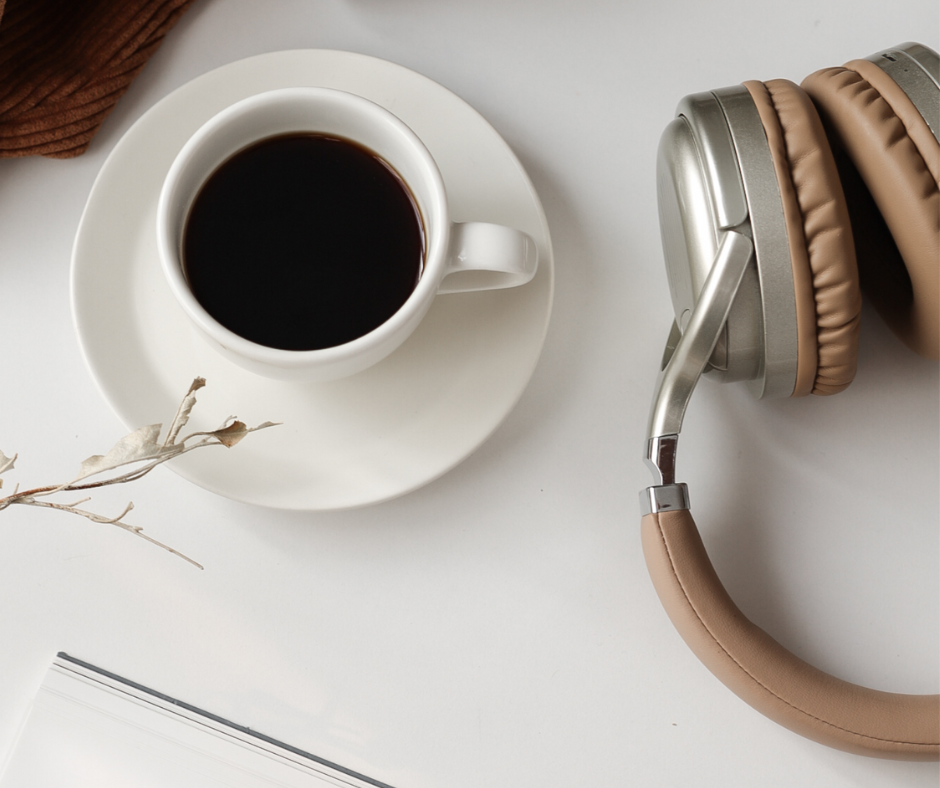Introduction
For coffee lovers, the aroma and taste of a freshly brewed cup of coffee can be the perfect start to their day. However, many people are concerned about the potential negative effects of caffeine on their sleep quality. This has led to the rise in popularity of decaf coffee, which offers a way to enjoy the flavors of coffee without the stimulating effects of caffeine. This blog will explore about drinking Decaf Coffee Before Bed.
The Popularity Of Coffee As A Daily Indulgence
Coffee has become a beloved beverage worldwide, with millions relying on it to kickstart their mornings or provide a mid-day energy boost. The rich flavors, comforting warmth, and even the ritual of brewing coffee have turned this beverage into a daily indulgence for many. However, for some individuals, the caffeine in coffee can interfere with their ability to get a good night’s sleep.
The Potential Impact Of Decaf Coffee On Sleep
Decaf coffee, as the name suggests, is coffee that has undergone a process to remove most of the caffeine content. This means that decaf coffee can offer a way for coffee lovers to enjoy their favorite beverage without worrying about caffeine’s sleep-disrupting effects.
While decaf coffee still contains a small amount of caffeine (typically less than 0.1% of its original caffeine content), research suggests it is unlikely to cause significant sleep disturbances for most individuals. The exact amount of caffeine in decaf coffee can vary depending on factors such as the brewing method and the type of coffee beans used. However, it is generally considered to be safe for consumption before bed.
It is important to note that individual sensitivity to caffeine can vary. Some people may still be sensitive to even small amounts of caffeine and may experience sleep disruptions if they consume decaf coffee before bed. It is advisable for individuals who are particularly sensitive to caffeine to avoid consuming decaf coffee or any other caffeinated beverages close to bedtime.
Decaf coffee can be a viable alternative for those who want to enjoy the taste and experience of coffee without the potential negative impact on sleep. It offers a way to indulge in a warm and comforting beverage in the evening without worrying about staying awake all night.
In conclusion, decaf coffee provides a sleep-friendly alternative for coffee lovers who enjoy the taste and experience of coffee but want to avoid the stimulating effects of caffeine. While it is generally considered safe to consume decaf coffee before bed, individual sensitivity to caffeine can vary. So, it is important to listen to your body and make choices that support a good night’s sleep.
Potential Benefits Of Decaf Coffee Before Bed
Bioactive Compounds And Antioxidants In Decaf Coffee
Decaf coffee refers to coffee beans that have undergone a process to remove most of the caffeine content. Although it may not provide the same energy boost as regular coffee, decaf coffee still contains bioactive compounds and antioxidants that can offer potential benefits.
One of the primary bioactive compounds in decaf coffee is chlorogenic acid, which has been linked to various health benefits. It may help reduce inflammation, improve insulin sensitivity, and even have a positive impact on heart health. Additionally, decaf coffee contains antioxidants, such as polyphenols, which can help protect cells against damage caused by harmful free radicals.
How Decaf Coffee Can Provide Comfort And Relaxation?
For some people, the taste and aroma of coffee are enjoyable and provide a sense of comfort and relaxation. While regular coffee before bed can disrupt sleep due to its caffeine content, decaf coffee allows individuals to enjoy the familiar ritual of having a warm beverage before bedtime without the stimulating effects of caffeine.
Drinking decaf coffee can be a calming and enjoyable experience, creating a sense of relaxation before sleep. It can also be a suitable alternative for those who want to minimize their caffeine intake without eliminating the pleasure of drinking coffee.
However, it is important to note that individuals may still have individual sensitivities to decaf coffee or be more susceptible to the potential side effects of coffee, such as acid reflux or stomach discomfort. It is always recommended to listen to your body and adjust your consumption accordingly.
Ultimately, if you enjoy the taste of coffee and find it comforting, decaf coffee before bed can be a sleep-friendly option. Ensure you choose a high-quality decaf coffee brand and consider the brewing method to ensure the best flavor.
In conclusion, decaf coffee before bed can offer potential benefits due to its bioactive compounds and antioxidants. It allows individuals to enjoy the taste and aroma of coffee without the stimulating effects of caffeine. However, it is essential to consider individual sensitivities and adjust consumption to ensure a good night’s sleep.
Personal Preference And Tolerance
Decaf coffee has become a popular choice for those who want to enjoy a warm cup of coffee without the stimulating effects of caffeine. However, when it comes to drinking decaf coffee before bed, personal preference and tolerance play a significant role in determining its impact on sleep.
Different Responses To Decaf Coffee Before Sleep
Not all individuals respond to decaf coffee in the same way. While some people may be able to enjoy a cup of decaf coffee in the evening without any adverse effects on their sleep, others may experience difficulties falling asleep or disrupted sleep patterns. The reason behind this variation lies in individual differences in caffeine metabolism.
Caffeine, even in small amounts, can affect sleep by increasing alertness and delaying sleep onset. Although decaf coffee contains significantly less caffeine compared to regular coffee, it still contains a small amount that can potentially interfere with sleep, especially for those who are highly sensitive to caffeine.
It is essential to understand that decaf coffee is not entirely caffeine-free. According to the U.S. Food and Drug Administration (FDA), decaf coffee can still contain up to 3% of the original caffeine in regular coffee. Therefore, individuals who are particularly sensitive to caffeine should consider avoiding decaf coffee close to bedtime.
Importance Of Listening To Your Body And Making Informed Choices
When considering whether to indulge in decaf coffee before bed, it is crucial to listen to your body and make informed choices based on personal experiences. Some factors to consider include:
- Personal tolerance: Pay attention to how your body responds to decaf coffee. If you notice any adverse effects on your sleep, such as restlessness or difficulty falling asleep, it may be best to avoid consuming decaf coffee before bed.
- Timing: If you decide to enjoy a cup of decaf coffee in the evening, it is recommended to do so at least a few hours before bedtime. This allows your body enough time to metabolize the small amount of caffeine present in decaf coffee.
- Experimentation: Everyone’s body is unique, and what works for one person may not work for another. If you are curious about drinking decaf coffee before bed, consider experimenting with different timings and observing how it affects your sleep quality.
In conclusion, the impact of decaf coffee on sleep can vary from person to person. Personal preference and tolerance should guide individuals in making informed choices about consuming decaf coffee before bed. Experience difficulties falling asleep or disrupted sleep patterns after consuming decaf coffee. It may be best to consider alternative caffeine-free beverages in the evening to promote a restful night’s sleep.
Sleep Issues Associated With Consuming Decaf Coffee Close To Bedtime
Long-term Sleep Problems
Decaf coffee, as the name suggests, is coffee with reduced caffeine content. While it may seem like a good alternative to regular coffee for those sensitive to caffeine or looking to cut back, consuming decaf coffee close to bedtime can still disrupt your sleep.
Although the caffeine content in decaf coffee is significantly lower than regular coffee, it is not completely free of caffeine. A typical cup of decaf coffee contains about 2-15 milligrams of caffeine, compared to 95 milligrams in a regular cup of coffee. While this amount may seem insignificant, it can still have an impact on individuals who are highly sensitive to caffeine.
Regular consumption of decaf coffee before bed can potentially lead to long-term sleep problems. The caffeine in decaf coffee can interfere with the sleep-wake cycle, making it difficult to fall asleep and maintain a deep and restful sleep. This can result in daytime fatigue, reduced cognitive function, and decreased productivity.
Factors To Consider For A Good Night’s Sleep
To ensure a good night’s sleep, it is important to consider various factors affecting sleep quality, including caffeine consumption. Here are some key factors to keep in mind:
- Timing: Avoid consuming decaf coffee or any caffeinated beverage too late. Ideally, it is recommended to have your last cup of decaf coffee at least 4-6 hours before going to bed to allow enough time for the caffeine to be metabolized by your body.
- Sensitivity: Individuals vary in their sensitivity to caffeine. Some may be more tolerant and can handle a cup of decaf coffee in the evening without any sleep disturbances, while others may need to avoid it altogether. Pay attention to your body’s response and adjust your consumption accordingly.
- Sleep routine: Consistent sleep can also contribute to better sleep quality. Create a relaxing bedtime routine that does not involve consuming caffeinated beverages, including decaf coffee. Instead, opt for soothing herbal teas or other caffeine-free alternatives.
- Environment: Create a sleep-friendly environment by keeping your bedroom cool, dark, and quiet. Minimize distractions and ensure your bed and pillows are comfortable and supportive.
- Stress management: High stress levels can make it harder to fall asleep and stay asleep. Practice relaxation techniques, such as meditation or deep breathing exercises, to help calm your mind before bed.
While decaf coffee may be a suitable option for those looking to reduce their caffeine intake, it is important to be mindful of its potential impact on sleep. Adjust your consumption based on your sensitivity and sleep needs, and consider implementing other sleep-promoting practices to ensure a restful night’s sleep.
FAQ about Decaf Coffee Before Bed: Sleep-Friendly Sips
Q: Is it okay to drink decaf coffee before bed?
A: Yes, it is generally considered safe for most individuals to consume moderate amounts of decaf coffee before bed.
Q: What are the potential benefits of drinking decaf coffee before bed?
A: Decaf coffee offers potential health benefits beyond its impact on sleep. It contains bioactive compounds and antioxidants that have been associated with reducing the risk of certain diseases, such as type 2 diabetes and certain types of cancer.
Q: Does decaf coffee affect sleep patterns?
A: Decaf coffee can affect sleep patterns in a similar way to regular coffee. Some individuals may find that it has no adverse effects on their sleep, while others may prefer to avoid it altogether. It’s important to listen to your body, evaluate how decaf coffee affects your sleep, and make choices accordingly.
Q: Can drinking decaf coffee before bed help individuals unwind and relax?
A: Yes, for many people, enjoying a cup of decaf coffee before bed can provide a comforting and pleasurable ritual that helps them unwind and relax.
Q: Should personal preference and tolerance be taken into account when deciding to drink decaf coffee before bed?
A: Absolutely. The decision to drink decaf coffee before bed ultimately depends on personal preference and tolerance. Some individuals may find it has no negative impact on their sleep, while others may prefer to avoid it altogether. It’s important to be aware of your own body’s response and make an informed decision.
Q: Are there any potential risks or side effects associated with drinking decaf coffee before bed?
A: Generally, decaf coffee is considered safe for consumption. However, individuals who are particularly sensitive to coffee or have certain medical conditions should consult with a healthcare professional before making a decision. It’s always best to listen to your body and make choices that work best for you.
Q: How can I make an informed decision about drinking decaf coffee before bed?
A: By being aware of your personal preferences, listening to your body, and practicing good sleep habits, you can make an informed decision about enjoying a cup of decaf coffee before bed. Remember that everyone’s sleep needs and responses are unique, so find what works best for you and savor your decaf coffee with peace of mind.
Conclusion
Now you know all about drinking Decaf Coffee Before Bed. Decaf coffee can be a sleep-friendly option for those who crave a warm cup of joe before bed. The minimal caffeine content in decaf coffee ensures a peaceful night’s sleep without compromising on flavor. However, it is essential to consume decaf coffee in moderation and be aware of any potential sensitivities or allergies to avoid any adverse effects.
Moderation And Safety Of Consuming Decaf Coffee Before Bed
While decaf coffee is generally considered safe for consumption before bed, it is crucial to remember that everyone’s tolerance to caffeine varies. Some individuals may still be sensitive to even small amounts of caffeine. As a result, it is advisable to limit the consumption of decaf coffee to a reasonable amount, especially close to bedtime, to prevent any potential sleep disturbances.
Additionally, it’s worth noting that decaf coffee is not entirely caffeine-free. The caffeine content in decaf coffee can vary, usually ranging from 0-7 mg per 8 oz cup. While this amount is significantly lower than regular coffee, it can still have a mild stimulant effect on some individuals. It is always best to be mindful of your own body’s reaction to decaf coffee and make adjustments accordingly.
Personalized Approach To Enjoying Decaf Coffee With Peace Of Mind
To ensure a sleep-friendly experience, consider the following tips when enjoying decaf coffee before bed:
- Time your consumption: Allow a minimum of 3-4 hours between consuming decaf coffee and bedtime to give your body enough time to process any residual caffeine.
- Opt for Swiss Water Process decaf: This decaffeination method is considered the most natural and chemical-free, making it a healthier option for those conscious of potential chemical residues.
- Experiment with coffee-to-water ratio: If you find that even decaf coffee affects your sleep, try using less ground coffee or increasing the amount of water to decrease the caffeine concentration further.
- Consider alternative options: If you remain sensitive to caffeine or find that decaf coffee still impacts your sleep quality, explore caffeine-free herbal teas or other soothing beverages as an alternative nighttime ritual.
Remember, individual sensitivity to caffeine can vary greatly. It is essential to listen to your body and make informed decisions about your consumption of decaf coffee before bed. With a personalized approach and moderation, you can enjoy the comforting warmth and flavor of decaf coffee without compromising a good night’s sleep.

Deb Carlson at Crosslake Coffee: Join Deb at Crosslake Coffee for a delightful blend of community, caffeine, and creativity. Discover the cozy ambiance and warm hospitality that make this local coffee shop a beloved gathering spot. From expertly crafted espresso drinks to mouthwatering pastries, Deb invites you to savor every sip and bite. Stay connected with the latest updates on specials, events, and live music performances by following Deb Carlson at Crosslake Coffee on social media. Embrace the vibrant online community and share your love for great coffee and good company with fellow enthusiasts. Don’t miss out on a moment of the Crosslake Coffee experience – connect with Deb on social media today.



